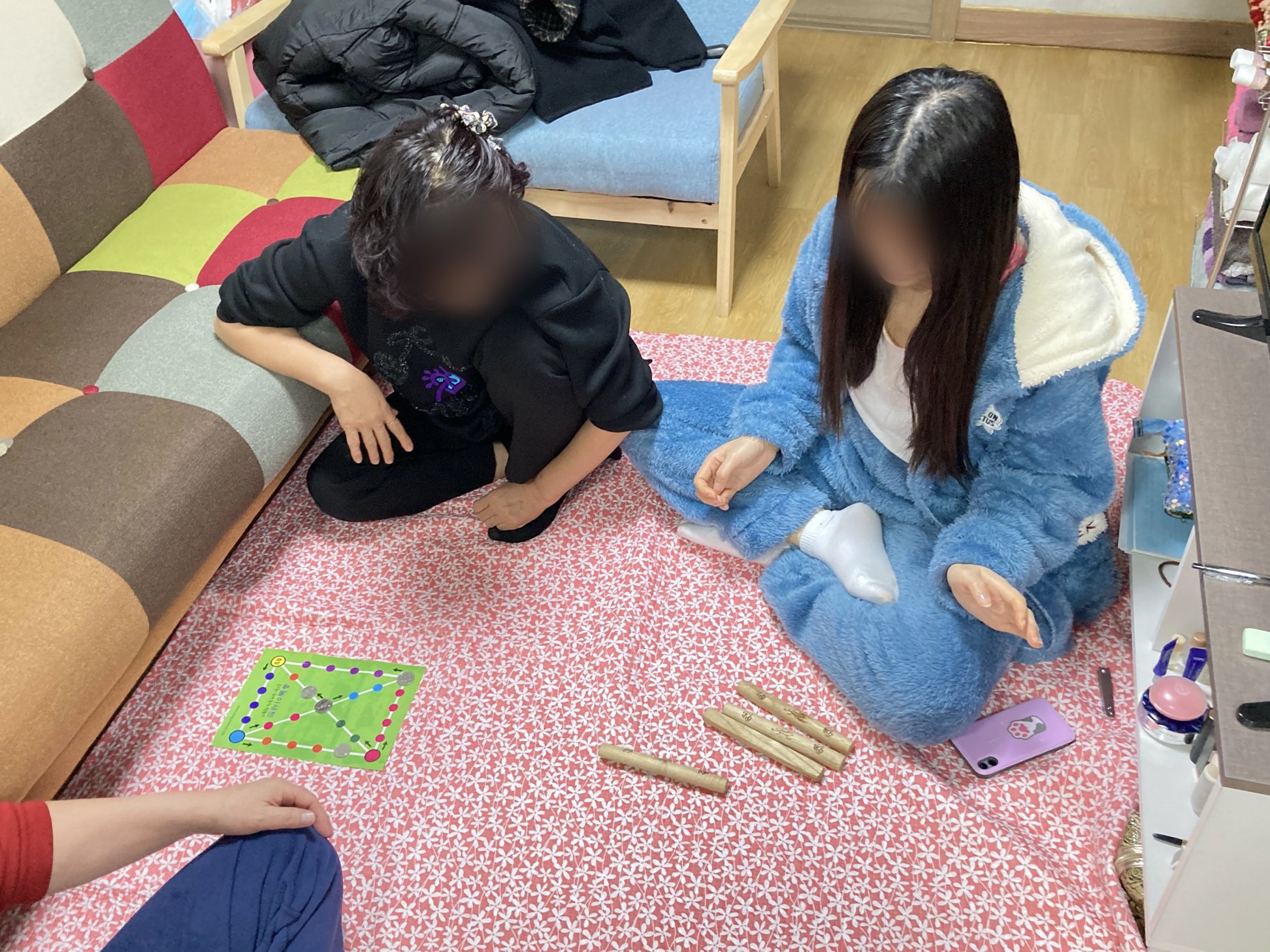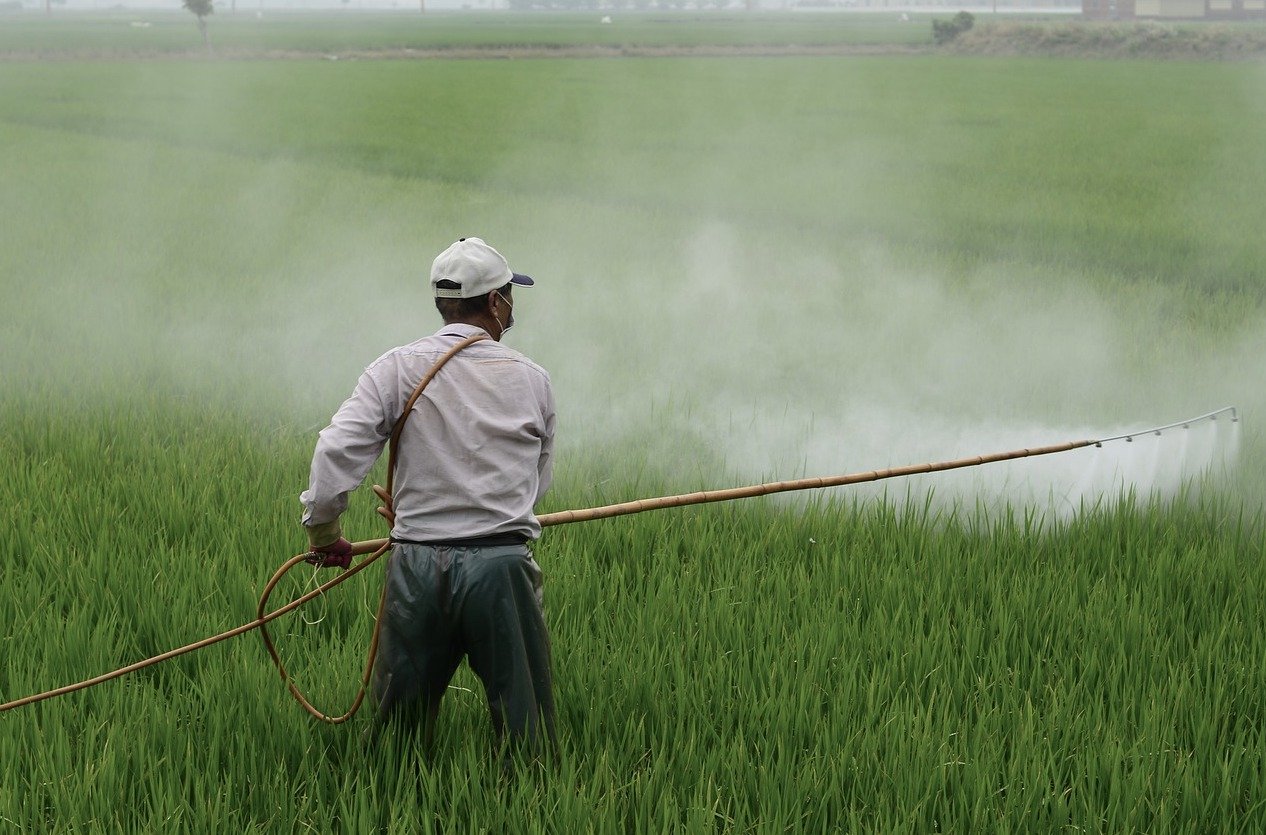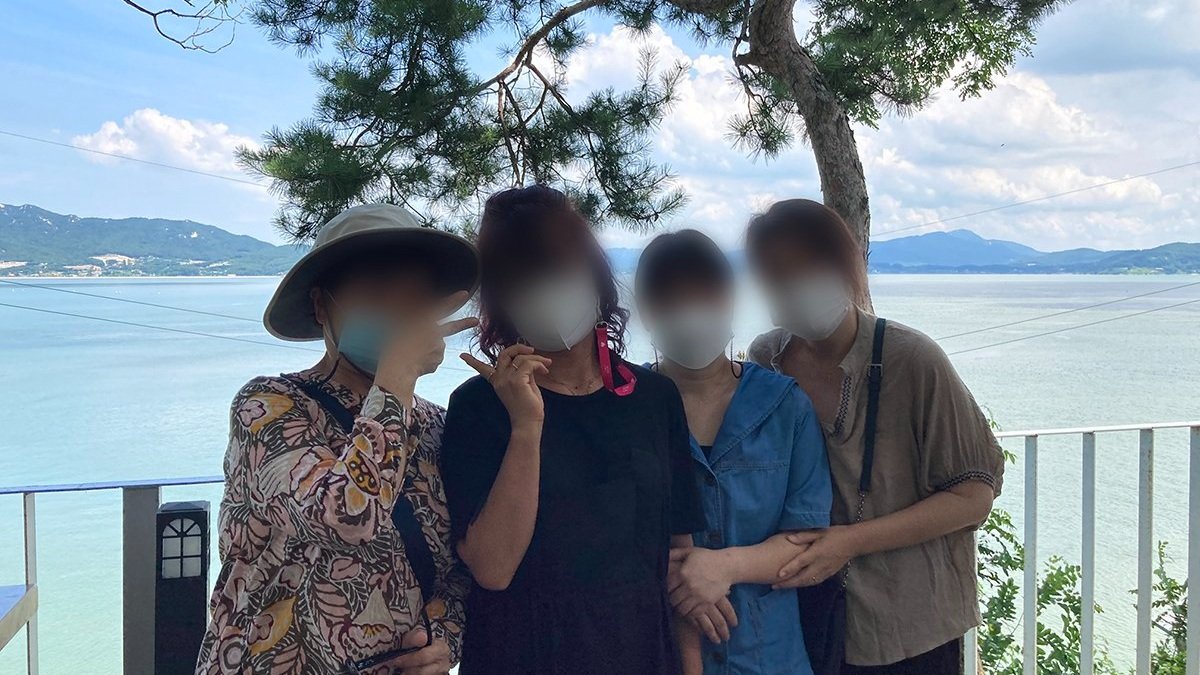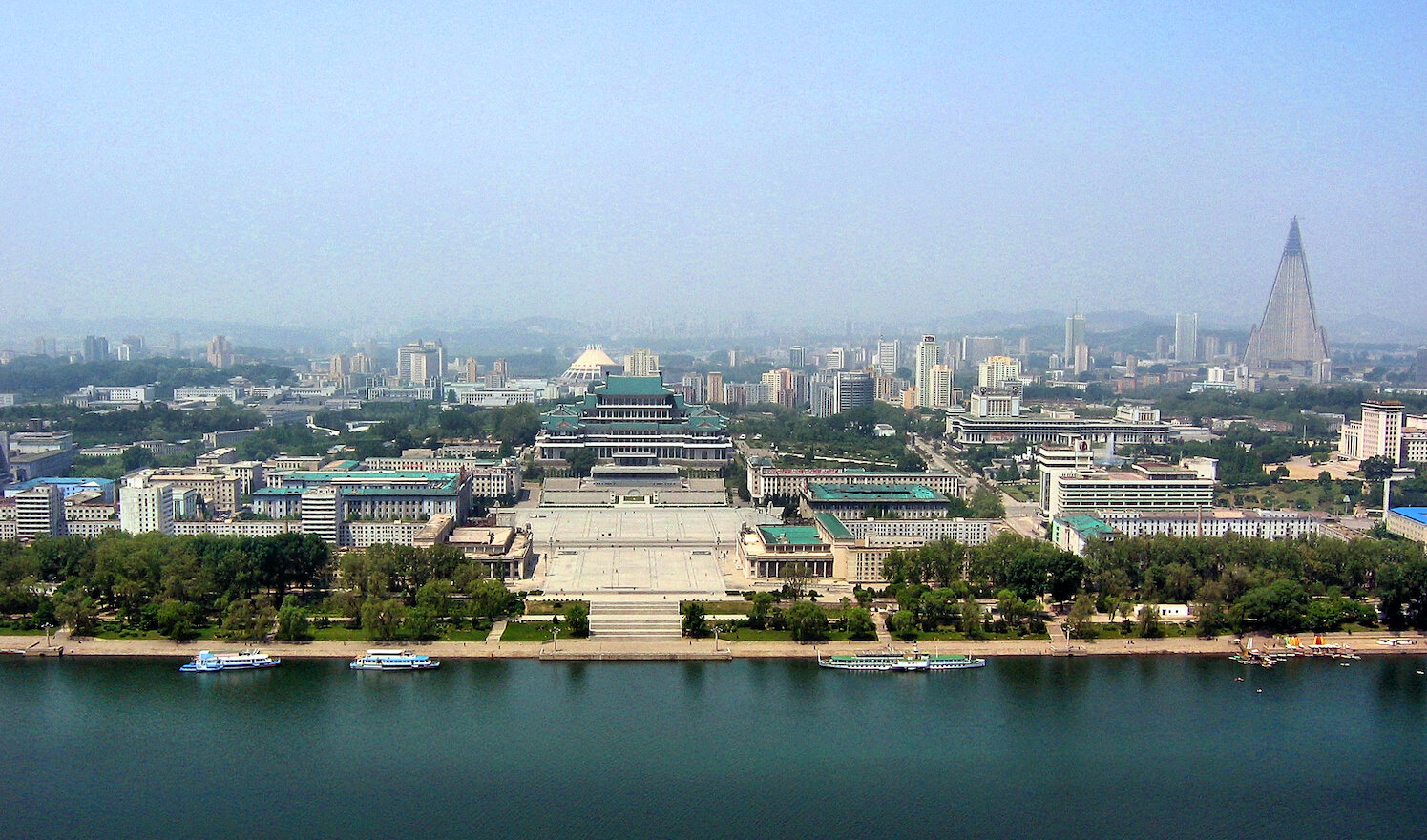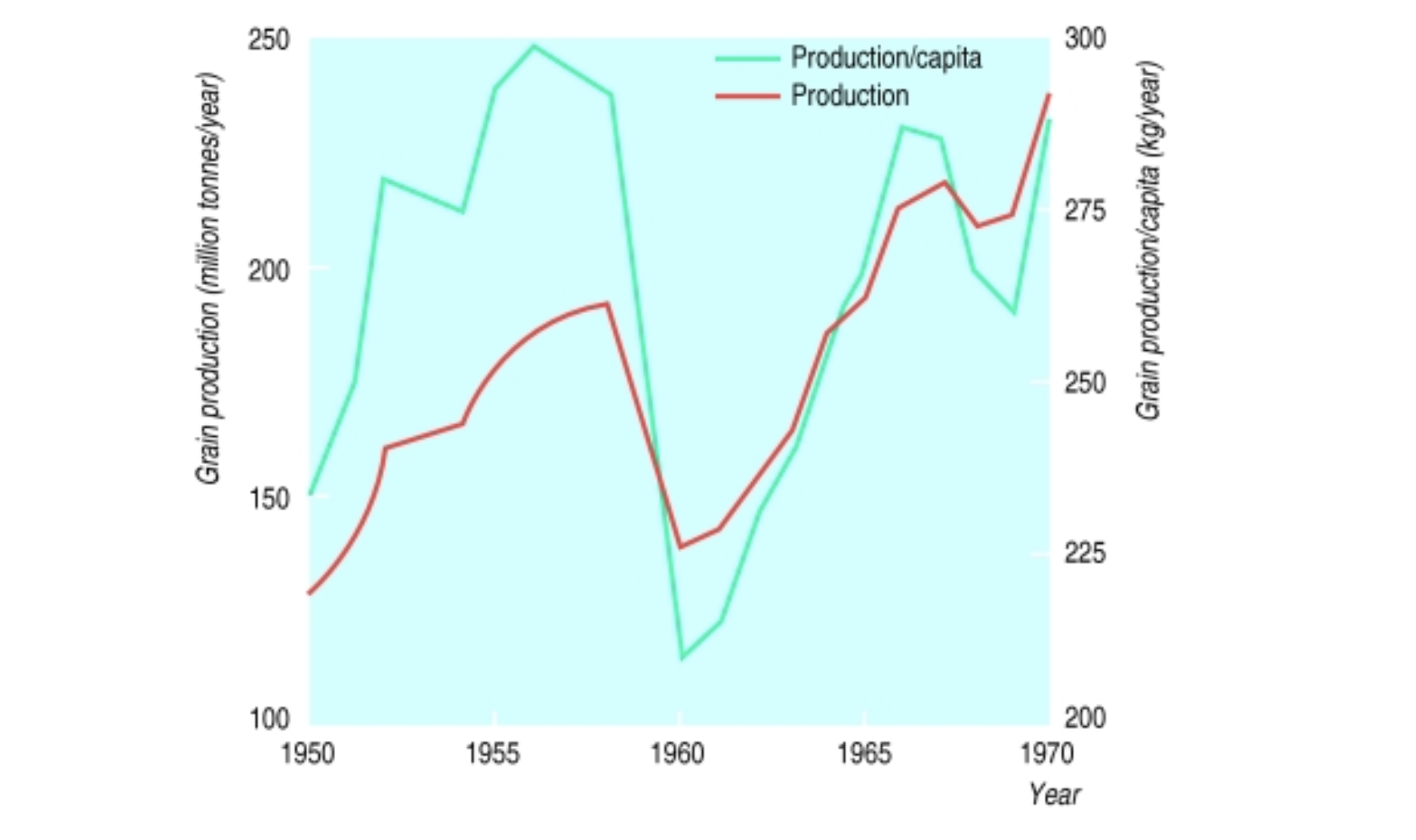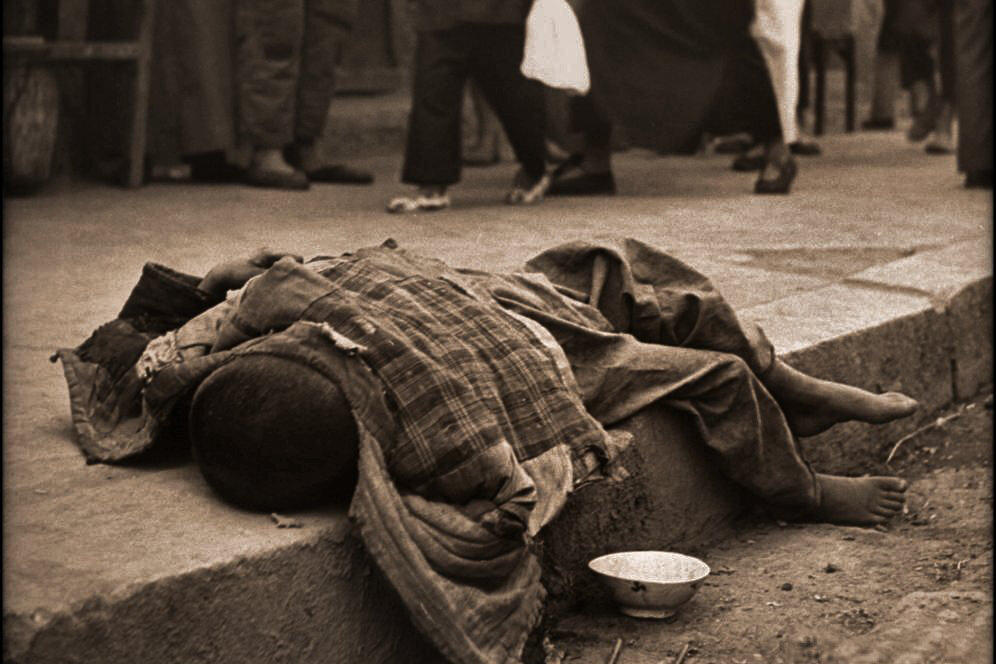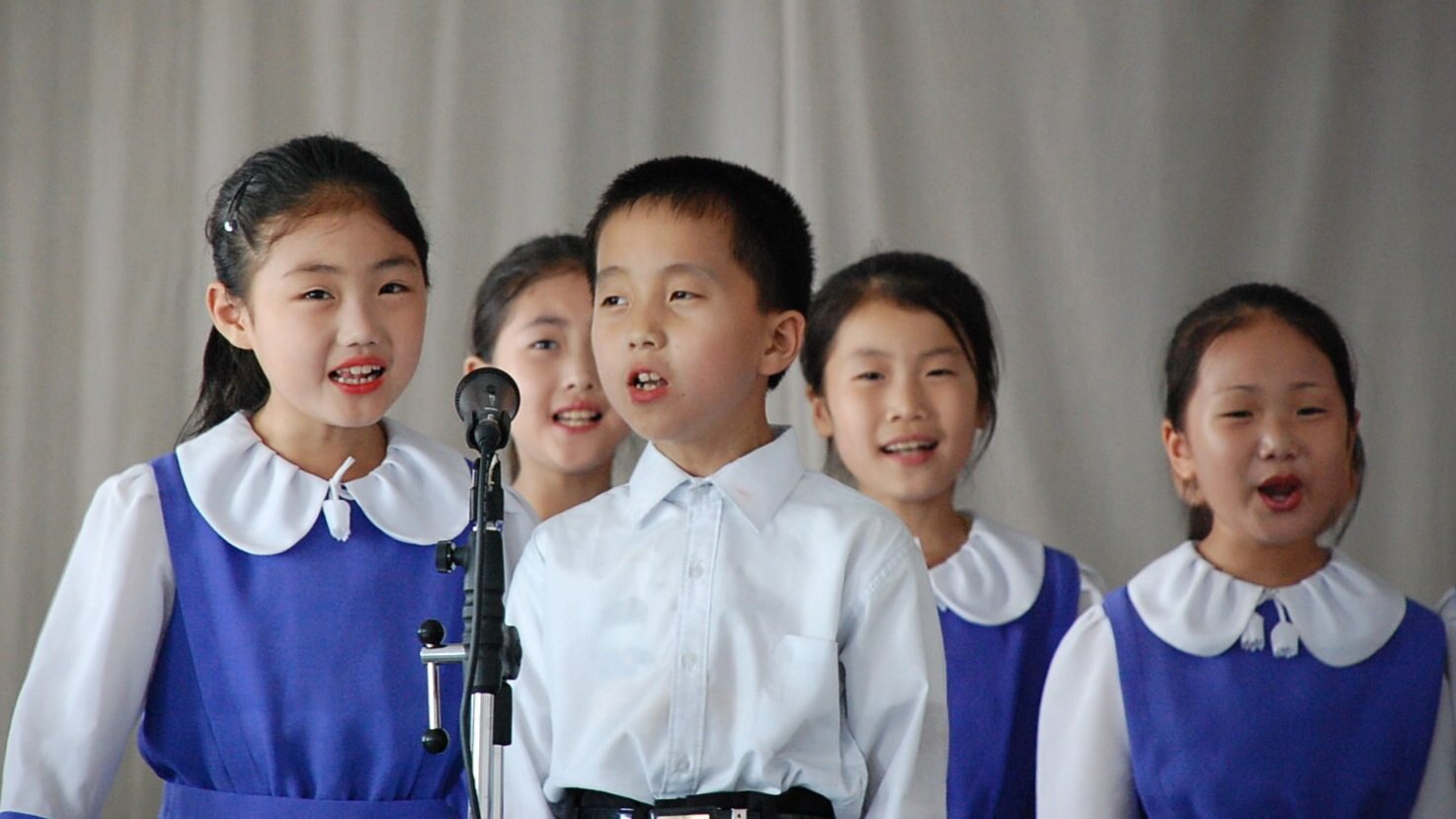Eunice (right) playing games with other Elim House residents.
Crossing the Yalu River
Eunice is 30 years old and recently left Elim House after we helped her secure a new apartment, one that her assailant would not know about. She came to us at the end of 2020 with a history of emotional and sexual trauma. She arrived in China in the summer of 2015 after claiming to fall asleep on the North Korea side of the Yalu River and waking up while being rescued by an elderly woman on China’s side of the river. She told us about being trapped in a relationship with a Chinese man for several years. This man kept her locked in the house out of fear of her running away. Eunice was forced to have sex with him regularly and became pregant but later miscarried after being physically abused by the same man.
She met a missionary who paid to get her safely to South Korea by way of Thailand. Eunice doesn’t clearly recall how she got to Thailand or how long she was there. She suffered from frequent nightmares. She was also exposed to the gospel during her time in Thailand. The constant nightmares even drove Eunice to pray for God to end her life. Much of what she shared with us about her time was disjointed but there was no suspicion by our team that she was intentionally being deceitful. Similar to many other North Korean refugees we’ve helped, it pointed to the severity of trauma she had lived through.
Arriving at Elim House
Upon graduating from Hanawon in 2018, she was able to reconnect with her missionary benefactor to whom she was eternally grateful for getting her to South Korea. To her shock, he had changed into a completely different person and had even left the church, by the time they met face-to-face. He turned from being a father figure to Eunice to a sexual predator, assaulting her for close to a year. She became pregnant and ultimately had an abortion. The thought of having his baby was more than she could bear. She was afraid, angry, couldn’t keep her mind focused, had thoughts of suicide and eventually called a police woman who had helped her in the past. This is how Eunice was ultimately referred to Elim House.
Imagine a lifetime of oppression, sexual, physical and emotional abuse further compounded by having to adapt to a completely foreign and the fast-paced culture of South Korea. Her age may be 30 but Eunice's cognitive level and her maturity do not reflect her age. She is quick to blame her forgetfulness to shirk responsibilities and has a tough time navigating through stressful situations.
Hana Foundation’s annual Settlement Survey of North Korean Refugees in South Korea from 2020 reported again that North Korean refugees living in South Korea experience suicidal impulses at a rate that is more than double that of South Korean natives, 13 percent and 5.2 percent respectively. This rate increased almost 5 percent from 2019 to 2020 for North Korean refugees.
Whether the respondent experienced any suicidal impulse
Looking deeper into the data shows that 14.4 percent of North Korean refugee women experienced suicidal impulses, which is 70 percent more than that of North Korean men (8.5 percent). The leading reason cited by refugee women is “physical or mental illness or disorder” at 30 percent.
Experience of and reasons for any suicidal impulse
Rescue from Loss
But when the fullness of time had come, God sent forth his Son, born of woman, born under the law, to redeem those who were under the law, so that we might receive adoption as sons. Galatians 4:4-5
The word “redeem” came up during a Bible study of Galatians 4:4-5, which was a foriegn concept to our Elim House residents, including Eunice. As the Holy Spirit worked in their hearts, they were able to relate it to their experience of being sold to Chinese men as forced brides, like slaves. Their eyes lit up as they made this connection and they completely froze. The women understood the weight of enslavement more than most people because of their painful past experiences. The Greek word for “redeem” used in Galatians 4:5 can be translated as “ransom or rescue from loss”. It was amazing to see the idea click in the minds of these women who at that moment knew exactly what it meant to be redeemed.
Like most Elim House residents, Eunice was scheduled to meet regularly with a therapist who specializes in counseling North Korean refugees. Though she’s living on her own now, we pray that Eunice will continue her counseling and work towards healing the painful wounds of her past. Eunice’s story is a tragic example of how great the emotional damage is for many North Koreans who have walked in her same shoes.
Eunice at her new apartment.
Restore More
“Restore More” is our focus for this Giving Tuesday. Through Elim House, our aim is to restore more North Korean women in 2022, physically, emotionally and spiritually. Isaiah 26:3 says “You keep him in perfect peace whose mind is stayed on you, because he trusts in you.” This is our continued prayer for women who have suffered as Eunice did. Our goal is to raise $45,000 this Giving Tuesday so that we can help meet the physical, emotional and spiritual needs of more North Korean women and their children living in South Korea who may never otherwise experience the perfect and healing peace of God and to put their trust in Him.


